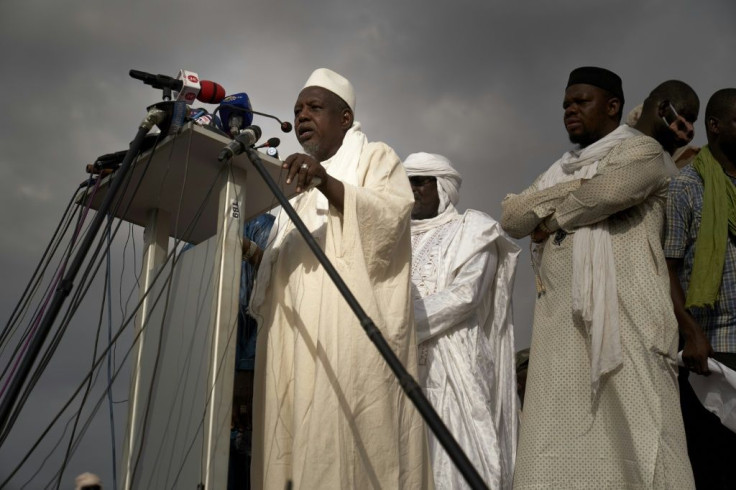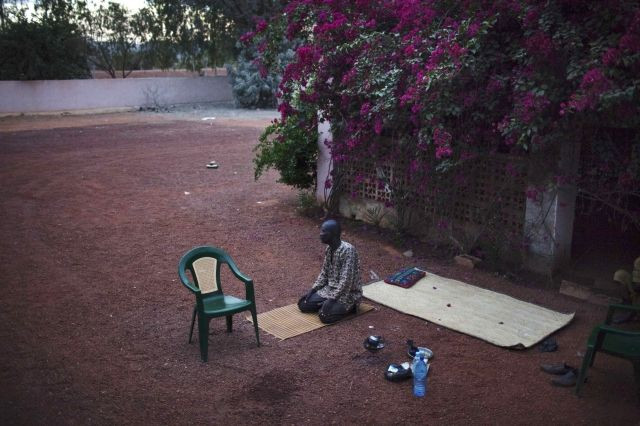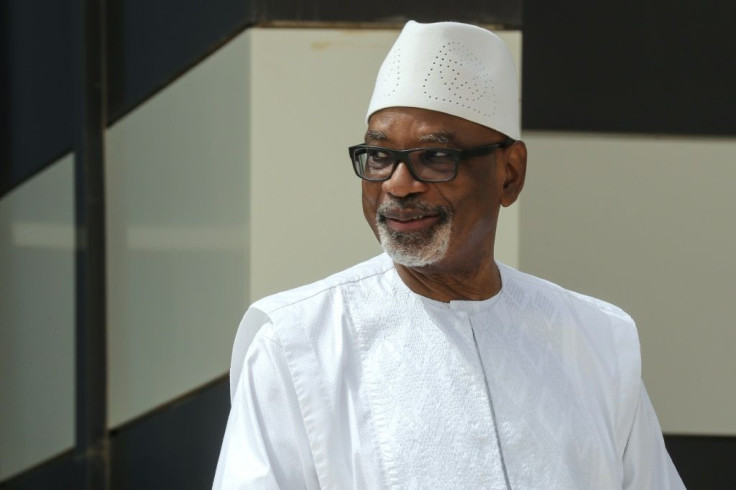Imam And Powerbroker: Malian Opposition Leader Mahmoud Dicko

A Saudi-trained imam has stepped into the world spotlight as powerbroker in the troubled West African state of Mali.
Mahmoud Dicko is de-facto head of a protest movement that has shaken President Ibrahim Boubacar Keita, stirring fears among allies and neighbours for the country's stability.
The so-called June 5 Movement has staged a string of protests since last month, the latest of which last Friday unleashed clashes with police in Bamako that led to 11 deaths over the weekend.
The 66-year-old imam is a former president of the Islamic High Council, a position that already made him one of Mali's most influential figures, but one that was little known in the broader world.
His clout, and visibility, have soared with the rising wave of discontent.
The June 5 Movement has tapped into a deep well of anger -- from a disputed parliamentary poll and government corruption to failures to roll back a bloody eight-year-old jihadist insurgency.
The opposition alliance is demanding that Keita resign and has forced him into offering a number of concessions.
In a sign of Dicko's growing political clout, Prime Minister Boubou Cisse paid a visit to him in the early hours of Monday morning, seeking his help in the crisis.
Among his supporters, Dicko and Keita are playing chess, and there are no prizes for guessing who is the grand master.
"This is where everything is played out, not in Koulouba," the presidential palace, said Moussa Doumbia, a smiling man in his thirties, in front of the mosque where Dicko has been preaching since the 1980s.
A native of the northern city of Timbuktu who received Wahhabi religious training in Saudi Arabia, Dicko was president of the Islamic High Council between 2008 and 2019.

He has long been a proponent of traditional values in the Muslim-majority country, and is an outspoken critic of corruption or perceived indecency.
But he also has a reputation as a canny behind-the-scenes operator.
He is not formally a member of the June 5 Movement despite being its figurehead. His close ally, Issa Kaou Djim, is a member, however.
The movement is being driven by a disparate group of religious leaders, political and civil society members, some of whom have apparently different goals.
It notably is demanding that Keita quit, but this is not a goal that Dicko has publicly endorsed.
Ibrahim Maiga, a researcher at the Institute for Security Studies in Bamako, said Dicko's strategy remained unchanged: "To influence politics and the government."

"He has always flirted with political questions but without officially stepping into" that arena, Maiga said.
Just last year, in an interview with AFP, Dicko dismissed the idea of seeking political office, saying "playing politics doesn't interest me."
Dicko's leadership of the Islamic High Council put him at the forefront of Mali's recent ideological battles.
In 2009, following protests, he made the government revise a family code that gave more rights to women, and in 2018 he successfully fought to get a draft textbook on sex education dropped.
The following year, he joined protests against surging violence in central Mali, which led to the then prime minister's resignation.
But Dicko was also a former ally of Keita, helping him to power in 2013 before turning opponent.
A rapprochement appeared on the cards at one point when the government appointed Dicko to head a mission to mediate with Islamic militants.
Mali, a former French colony, has struggled to contain an insurgency that first emerged in the north in 2012 before spreading to the centre of the country and to neighbouring Burkina Faso and Niger.
Thousands of soldiers and civilians have been killed and hundreds of thousands of people have fled their homes.
Dicko had long urged dialogue with the jihadists as a way of ending the bloodshed, but his role in the mediation effort was dropped.
Some analysts argue that a dispute over how to engage jihadist leaders provoked the rift between Dicko and Keita.
Despite this, his central role in shaping Mali's future seems undisputed.
Brema Ely Dicko, a sociologist at the University of Bamako, said no person "other than Dicko is capable of creating the framework for dialogue" between the government and protest leaders.
Maiga predicted: "Dicko will play a key role in Mali's future no matter how the struggle with IBK plays out".
ah/lal/eml/ri
© Copyright AFP {{Year}}. All rights reserved.





















